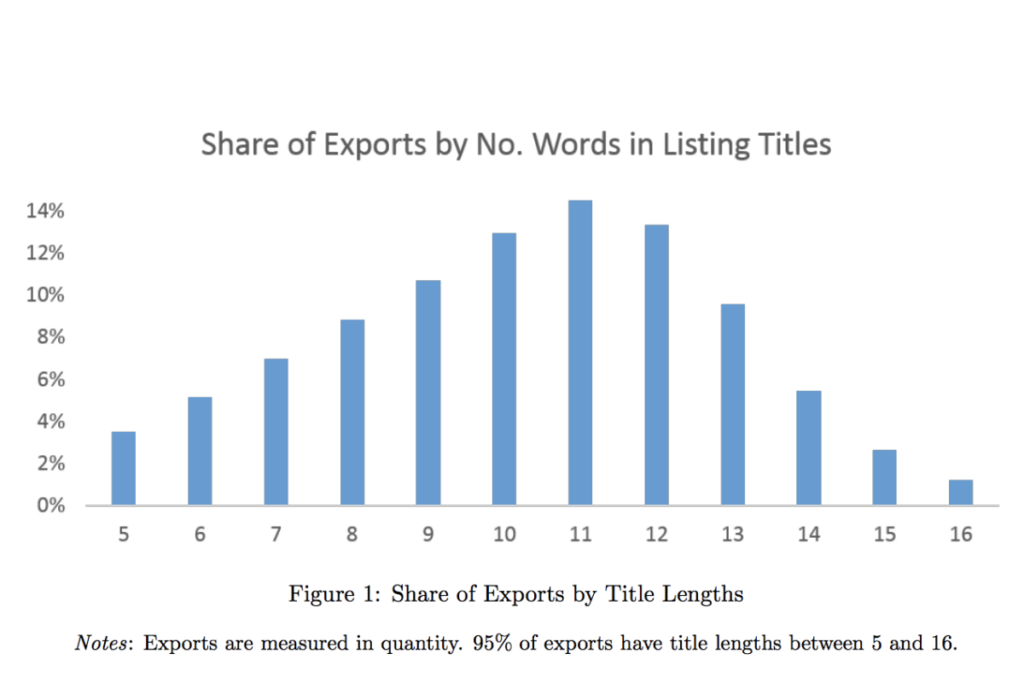The launch of an eBay artificial intelligence tool saw cross-border sales rise on the marketplace, says a new study Does machine translation affect international trade? evidence from a large digital platform.
The research analysed the effect of eBay switching to eBay Machine Translation (eMT) had on transactions. The study looked at the impact of the AI-powered tool on the US merchants selling to customers in Spanish-speaking Latin American countries.
eBay artificial intelligence tool added 10.9% sales boost
According to the study, eBay’s introduction of AI-powered eMT saw an increase in US sales to Latin America by 10.9%.
In 2014, eBay moved to the focal AI technology called eMT which statistically learns how to translate different languages. It replicates and improves translation quality over the previous tool Bing Translator used by eBay. The BLUE, an algorithm score used for evaluating the quality of text which has been machine-translated from one natural language to another saw an improvement in eBay translation from 41.01 to 45.24.
The study acknowledges that the sales boost by eMT might be biased. It says that contributing factors such as marketing activities and macroeconomic conditions could have impacted the results.
Language barriers hinder cross-border trade
The research analysed transactions of Spanish-speaking and Latin American customers who shopped on www.ebay.com. The translation of non-user generated content on the site such as product categories existed before and was not affected by the introduction of eMT. eBay’s transition to eMT affected translation quality of only search queries and listing titles. This means when buyers searched for products in Spanish, eMT translated them into English and the search engine retrieved listings in the search results page based on the translated query.
The paper studied the effect of lifting language barriers on international trade. eBay is a unique laboratory to study the consequences of bilateral trade as many of their merchants aim to sell cross-border. Shoppers always consider a product listing before committing to buying which could be purchase-hindering if not understood by a buyer.
The study also points to the link between automation and manual operations. It says that while shoppers care about the quality of translation, it makes no difference whether it was produced by a human or machine.











3 Responses
eBay marketing has really been pushing the “Artificial Intelligence” spin recently working overtime promoting all manner of AI articles and press releases.
Apparently also inducing experts, like Bernard Marr, to publish effusive pieces that read like paid advertisements for eBay’s “Amazing AI”:
https://www.forbes.com/sites/bernardmarr/2019/04/26/the-amazing-ways-ebay-is-using-artificial-intelligence-to-boost-business-success/
At first blush this reads like a legit study, but any reader aware of how critical China’s CBT is to eBay’s future should proceed with some skepticism – after all, is it really surprising to anyone that more effective translations yield better conversions (whether performed by human or computer)?
The authors of the paper “thank eBay, especially Brian Bieron”.
Bieron is essentially a lobbyist who now heads eBay’s public policy lab, and previously eBay’s US Government Relations Team overseeing eBay staff, outside lobbying firms, a DC-based PR firm (!), various trade associations and a federal political action committee. These resources were focused on issues important to eBay and its community of users.
Lastly, the data for this study is from 2014, a virtual lifetime ago in terms of the progress in AI and ML.
As mentioned previously, although effectiveness of translation accuracy will of course always be relevant, current translation tools have long-ago eclipsed the data and empirical strategy of this study.
I get shivers down my spine when I hear those two things put together. AI and eBay. They should not ever go together. In eBay’s world, AI is the biggest disaster they have every tried to implement. They get everything wrong. They send you items to look at that you have no interest in whatsoever. Generally just junk.
As for cross the border, I used to get about 10% of sales worldwide. I am now down to 2% and that’s only because they are regular customers.
I don’t care who you are, put what you’re looking for into eBay’s search engine and I guarantee you it will come back with nothing relevant and will likely pander to their favorites…..(see China, India, everywhere but the US)